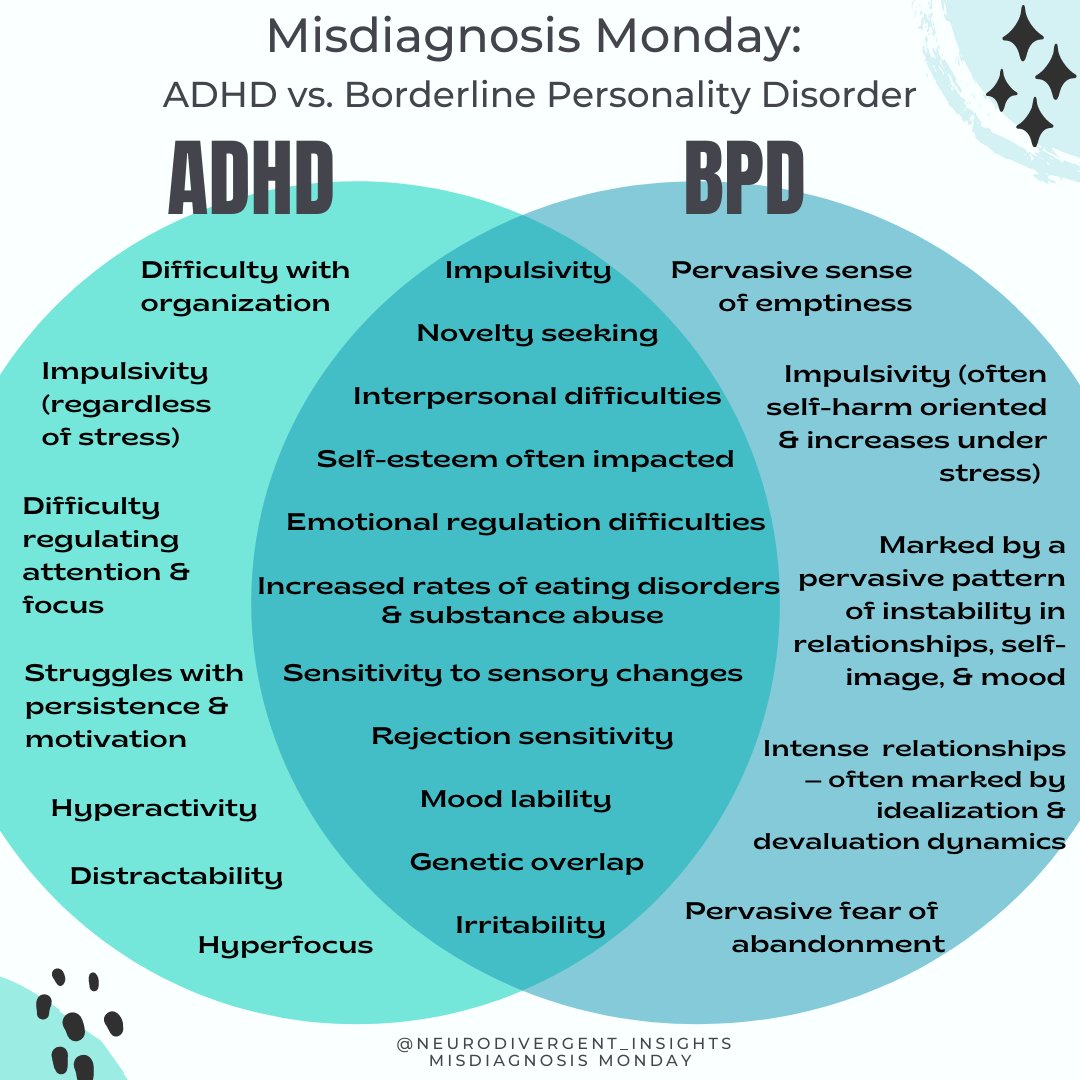9 女性 BPD 的症状

Table of contents
无论是男性还是女性,边缘型人格障碍(BPD)都有以下症状:
- 冲动
- 长期的空虚感
- 自我伤害
- 高抑制灵敏度
- 不稳定的自我形象
- 害怕被遗弃
- 情绪不稳定
- 迸发的愤怒
- 分离焦虑
- 多疑的想法
患有 BPD 症状的男性和女性的相似之处多于不同之处。 但确实存在一些重要的差异。 这些差异主要与以下方面有关 程度 男性和女性都会出现上述某些症状。
See_also: 什么是心理学中的 "重构"?由于男女在某些方面存在差异,这些差异会反映在 BPD 的症状中。
See_also: 我为什么这么安静? 15 个可能的原因女性 BPD 的症状
1. 强烈的情感
高度敏感的人更容易在 BPD 中表现出强烈的情绪。 他们对情绪的感受更深、更强烈。 情绪往往会对他们产生更强烈、更持久的影响。
一般来说,女性往往比男性更敏感,因此她们往往会在 BPD 中体验到更强烈的情绪。
2. 焦虑
实际或感知到的被遗弃威胁会引发 BPD 患者的分离焦虑。 BPD 患者对被遗弃的暗示高度警惕。 他们很可能会将中性事件(X 和 Y)误解为:
"X意味着他们会抛弃我"
"他们抛弃了我,做了Y"
由于女性往往更需要与他人建立联系,因此真实或感知到的被遗弃带来的焦虑对女性的伤害尤为严重。
3. 创伤后应激障碍
与男性相比,患有 BPD 的女性更有可能报告过去曾遭受过身体虐待或性虐待。1 因此,她们更有可能表现出创伤后应激障碍的典型症状,例如:
- 关于创伤事件的倒叙和噩梦
- 消极和绝望
- 自毁行为
4. 饮食失调
患有 BPD 的女性比男性更容易患饮食失调症,例如:
- 神经性厌食症
- 神经性贪食症
- 暴饮暴食
患有 BPD 的男性和女性往往会有这种内在化的羞耻感--一种消极的自我观。 因此,他们很可能会破坏自己,沉溺于破坏自己形象和自尊的行为中。
女性的外貌往往是自尊心的重要来源。 因此,她们会暴饮暴食或不吃东西来破坏自我形象。
对于男性来说,他们的足智多谋(职业)往往是自尊的重要来源。 因此,为了自毁前程,他们可能会故意丢掉工作。
5. 识别面部表情
虽然过去的创伤会让男性和女性成为非语言沟通的好读者,但 BPD 女性尤其擅长识别面部表情。
6. 身份困扰
研究表明,患有 BPD 的女性比男性更容易产生不稳定的自我意识。
这可能是因为身体虐待和性虐待造成了难以克服的强烈内化羞耻感,与内化羞耻感较弱或不存在的情况相比,它对建立积极的自我形象造成了巨大的阻力。
7.神经质
患有 BPD 的女性在神经质方面的得分往往高于男性。4 这对一般女性来说也是如此,可以归结为男女之间的性别差异。
8. 关系中断
患有 BPD 的女性比男性更容易产生敌意和破坏人际关系。
他们很可能会切断人们的生活。
如果您患有 BPD,您的社交生活越丰富,受到的干扰就可能越多。
9.惊恐/偏离行为
研究表明,患有 BPD 的母亲会对婴儿表现出恐惧或迷失方向的行为。
这是什么意思?
惊吓行为包括 "征求婴儿同意 "或 "犹豫是否要抱婴儿"。
迷失方向或杂乱无章的行为包括 "对婴儿的狂热举动"、"突然和不寻常的声调变化 "或 "不安慰婴儿"。
这些行为可能会降低母亲的反应能力,导致孩子的依恋创伤。
参考资料
- Johnson, D. M., Shea, M. T., Yen, S., Battle, C. L., Zlotnick, C., Sanislow, C. A., ... & Zanarini, M. C. (2003)。边缘型人格障碍的性别差异:人格障碍合作纵向研究的发现。 综合精神病学 , 44 (4), 284-292.
- Sansone, R. A., Lam, C., & Wiederman, M. W. (2010)。《边缘型人格中的自残行为:性别分析》。 神经和精神疾病杂志 , 198 (12), 914-915.
- Wagner, A. W., & Linehan, M. M. (1999)。边缘型人格障碍女性的面部表情识别能力:对情绪调节的影响? 人格障碍杂志 , 13 (4), 329-344.
- Banzhaf, A., Ritter, K., Merkl, A., Schulte-Herbrüggen, O., Lammers, C. H., & Roepke, S. (2012)。边缘型人格障碍患者临床样本中的性别差异。 人格障碍杂志 , 26 (3), 368-380.

